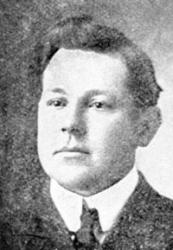Planning worship?
Check out our sister site, ZeteoSearch.org,
for 20+ additional resources related to your search.
- |
User Links
Search Results
After the Shadows
Author: James Rowe Appears in 5 hymnals First Line: After the shadows flee, beautiful morn 'twill be Refrain First Line: After the shadows, morning will come Used With Tune: [After the shadows flee, beautiful morn 'twill be]
After the Shadows
[After the shadows flee, beautiful morn 'twill be]
Appears in 2 hymnals Composer and/or Arranger: R. H. Cornelius Tune Key: G Major Used With Text: After the Shadows
[After the shadows flee, beautiful morn 'twill be]
After the Shadows
Author: James Rowe Hymnal: Cornelius' Gospel Songs #2 (1927) First Line: After the shadows flee, beautiful morn 'twill be Refrain First Line: After the shadows, morning will come Languages: English Tune Title: [After the shadows flee, beautiful morn 'twill be]
After the Shadows
After the Shadows
Author: James Rowe Hymnal: Cornelius' Gospel Songs No. 3 #58 (1929) First Line: After the shadows flee, beautiful morn 'twill be Refrain First Line: After the shadows, there will be sunshine Languages: English Tune Title: [After the shadows flee, beautiful morn 'twill be]
After the Shadows
After the shadows, there will be sunshine
Author: James Rowe Hymnal: Home Gospel Songs No. 2 #d2 (1927) First Line: After the shadows flee, beautiful morn 'twill be Languages: English
After the shadows, there will be sunshine
James Rowe

1865 - 1933 Author of "After the Shadows" in Cornelius' Gospel Songs No. 3 Pseudonym: James S. Apple.
James Rowe was born in England in 1865. He served four years in the Government Survey Office, Dublin Ireland as a young man. He came to America in 1890 where he worked for ten years for the New York Central & Hudson R.R. Co., then served for twelve years as superintendent of the Mohawk and Hudson River Humane Society. He began writing songs and hymns about 1896 and was a prolific writer of gospel verse with more than 9,000 published hymns, poems, recitations, and other works.
Dianne Shapiro, from "The Singers and Their Songs: sketches of living gospel hymn writers" by Charles Hutchinson Gabriel (Chicago: The Rodeheaver Company, 1916)
James Rowe
R. H. Cornelius

1872 - 1933 Composer of "[After the shadows flee, beautiful morn 'twill be]" in Cornelius' Gospel Songs No. 3 R.H. Cornelius, known as Rufus Cornelius by his friends, was born in Blount Co., AL., January 24, 1872. He was educated in the public schools of Oneonta, the county seat. He began teaching in the public schools at an early age and at one time was associate Principle of the Oneonta High School. It was while teaching in the high school that he became interested in church music and began to study with some of the best teachers of the time. His first major teacher was the late A J showalter in one of his normals at Eden, AL. He continued his study with this wellknown teacher until he had finished the courses a second time. He soon felt that the study of harmony was his first love in his study and soon became one of the best harmon teachers of his time.
Near the close of the century, he moved to Texas and settled in Midlothian, Ellis Co., where he established a publishing house and published many fine gospel song books that sold by the thousands. However, before coming to Texas, he was associated with The Showalter-Patton Co. who published his first compositions. Soon after coming to Texas, he devoted much time to teaching singing schools (Cornelius Normal Musical Institute) and soon became one of the best known teachers of that great state, often having many more calls for schools than he could have time for. In many cases his schools were dated years ahead. he had possessed a beautiful tenor voice and was of a very pleasant personality. This caused his to be loved by all who knew him. About 1914 he was called to Southwestern Baptist Seminary as head of the music department. After several years here in the Baptist School in Ft Worth, Texas, he felt he was more needed back in the field of teaching and songbook publishing. Soon after coming to Texas, he married Maycon Temperance Burleson, who was a fine singer and musician and wrote many songs.During the first 32 years of the 20th Century, this couple of musicians blessed the State of Texas with their singing and teaching. Of all the fine song written by Mr. Cornelius, "Oh, I want to See Him" will carry his memory for years to come. The Cornelius' were members of the Baptist Church and were devoted Christians.
Mr. Cornelius passed away in 1932. Mrs. Cornelius lived only about two years, passing away in 1934. In the passing of these fine gospel singer and teachers, church music suffered a great loss. By C C Stafford
--www.findagrave.com/cgi-bin/ (excerpts)
R. H. Cornelius


 My Starred Hymns
My Starred Hymns


